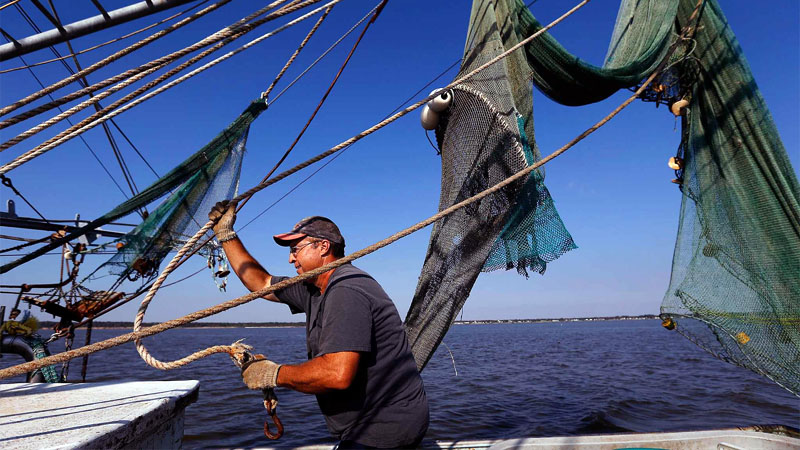Exclusive content

Shrimping in the Gulf of Mexico, United States, is a demanding and hazardous occupation. Texas shrimpers endure grueling month-long boat stints, battling not only the strenuous labor but also limited access to health care onshore. A recent study by UTHealth researchers sheds light on the challenges faced by these workers and the industry’s concerning fatality rate.
Strenuous Labor and Hazardous Conditions
The UTHealth study, led by environmental and occupational specialist Shannon Guillot-Wright, was published in the American Journal of Public Health. It highlights the harsh realities of shrimping: hazardous conditions, strenuous labor, long hours, and severe weather contribute significantly to the increased risks in the industry.
“Research shows that self-medication is an issue among commercial fishermen,” said Guillot-Wright. Many shrimpers, unable to afford proper medicine, resort to using alcohol to cope with injuries like back pain, inadvertently increasing their risk of falling overboard.
Alarming Fatality Rates
The study reveals that the U.S. fishing industry’s occupational fatality rate is approximately 40 times higher than the national average. From 2000 to 2019, 201 fishermen died from traumatic injuries in the Gulf of Mexico, with 51% of these fatalities involving shrimpers.
In Texas, the shrimping labor force predominantly consists of migrants and refugees, primarily from Vietnamese and Mexican backgrounds. Vessel disasters and overboard falls accounted for 80% of the Gulf Coast deaths in the past two decades. However, Guillot-Wright noted that shrimpers are more concerned about how their overall health issues lead to dangerous slips, trips, and falls.
Inadequate Health Care Access
Initially, the research team considered interventions involving personal flotation devices. However, shrimpers dismissed this idea, highlighting a more pressing issue: many had not seen a doctor in decades. This lack of medical attention exacerbates the risks they face daily.
In response, the UTHealth team shifted its focus to providing accessible health care. They established a monthly dockside clinic in Galveston, which has treated over 300 patients in the past three years. Despite this effort, the study concluded that shrimpers’ vulnerability to death and danger is compounded by psychological distress, skewed risk recognition, and precarious employment.
Social Inequities and Future Steps
The study emphasizes that, while the dockside clinic is a step in the right direction, it alone cannot eliminate the challenges faced by Gulf Coast shrimpers. Comprehensive solutions addressing both health care and broader social support systems are essential to mitigate the risks in this high-fatality industry.